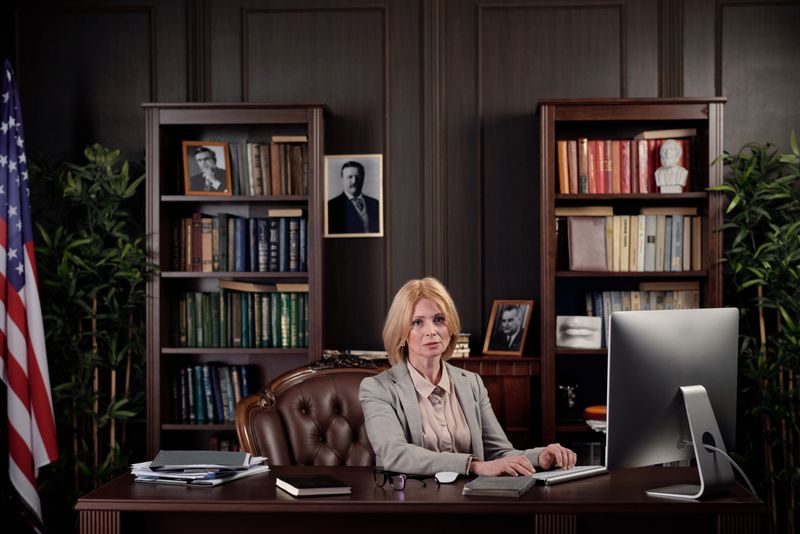The Moral Dilemma of Military Conscription in Russia
Exploring the Age Limit and the Role it Plays in the Ukraine Crisis
As tensions continue to escalate between Russia and Ukraine, the issue of military conscription in Russia has once again come under intense scrutiny. With conscription laws dictating that all male citizens aged between 18 and 27 serve in the armed forces, many are questioning the moral implications of such a policy. This report delves into the ethical dilemma surrounding military conscription and examines its role within the context of the ongoing Ukraine crisis.
The Impact of Conscription on Russian Society
Since the collapse of the Soviet Union, Russia has maintained a system of compulsory military service. Under this system, young men are required to serve in the armed forces for a period of 12 months. This tradition has deep cultural roots in Russian society, but it has also been a subject of great controversy and debate.
The mandatory conscription policy has far-reaching impacts on both individuals and society as a whole. From an individual standpoint, conscription poses challenges to personal freedom and autonomy. Young men, often just entering adulthood, are forced to put their lives on hold for a year, putting their education, careers, and personal relationships at risk. This disruption can lead to frustration, dissatisfaction, and a sense of injustice among those being conscripted.
On a wider societal level, conscription has implications for the country’s readiness and defense capabilities. By relying on conscription rather than maintaining a professional standing army, Russia ensures a large pool of military personnel that can be swiftly mobilized in times of conflict or national emergency. However, this also means that the armed forces may consist of individuals who are less motivated, less skilled, and less committed to their military duties.
The Age Limit Debate
One of the key points of contention within the military conscription system is the age limit. Critics argue that the current age range of 18 to 27 is too broad, encompassing individuals at vastly different stages of their lives. They argue that an age limit which extends up to 27 years old is arbitrary and unfair.
Proponents of the current system, on the other hand, maintain that the broad age range ensures that the armed forces have a diverse pool of recruits with varying skills and life experiences. They argue that having older recruits can bring maturity and leadership capabilities to the military and enhance the overall effectiveness of the armed forces.
The Role of Conscription in the Ukraine Crisis
The ongoing Ukraine crisis has reignited discussions about the role and necessity of military conscription in Russia. Critics argue that conscription is being used as a tool to bolster Russian military presence in the region and maintain control over disputed territories. They claim that conscripted soldiers are being deployed to the conflict zones without proper training or adequate understanding of the situation, resulting in unnecessary casualties.
The debate surrounding conscription‘s involvement in the Ukraine crisis raises complex ethical questions. The loss of life and suffering endured by both Russian and Ukrainian soldiers highlights the inherent risks and consequences of conscripted military service. It prompts us to consider the value of voluntary enlistment, where individuals willingly choose to serve, rather than being compelled to do so.
Editorial: Reassessing the Conscription Policy
Given the moral dilemmas and practical concerns associated with military conscription, it is essential for the Russian government to reassess its conscription policy. The age limit should be revised to reflect a more targeted approach that takes into account the specific needs and abilities of individuals at different stages of their lives.
Furthermore, Russia should consider investing in the professionalization of its armed forces. By transitioning towards a standing army composed of highly trained and motivated soldiers, the country can enhance its national defense capabilities and reduce the reliance on conscription. This would also alleviate the disruption caused to the lives of young men and promote a stronger sense of fairness and personal agency.
Advice for Russian Policy Makers
In evaluating the conscription policy, Russian policy makers should consider the experiences of other countries that have successfully transitioned from mandatory conscription towards professional standing armies. Countries like Canada and Germany have demonstrated that a professionalized military can be highly effective and successful in both national defense and international peacekeeping missions.
Moreover, policy makers should seek input from a wide range of stakeholders, including military experts, human rights advocates, and representatives from the academic community. Engaging in a comprehensive dialogue will ensure that any reforms and adjustments made to the conscription policy are well-informed and reflect the best interests of the nation and its citizens.
Ultimately, striking a balance between national defense requirements and individual liberties is crucial. While conscription can serve as a bulwark against external threats, it is essential to respect the rights and aspirations of each individual. A thoughtful and considered approach to military conscription will not only strengthen Russia‘s armed forces but also preserve the dignity and agency of its citizens.

<< photo by Markus Splisser >>
The image is for illustrative purposes only and does not depict the actual situation.
You might want to read !
- Canadian Basketball Star Andrew Nicholson Exposes Deep-rooted “Insecurity” Within the Sport
- Oppenheimer Film Fails to Capture Depth of Anti-Nuclear Movement: Critics
- Discovering the Drama: A Look Back at Season 2 of ‘Sweet Magnolias’
- 10 Fascinating Facts Unveiling the Enigmatic Life of Albert Einstein
- Turkey’s Nato Membership: A Historic Step Forward with Sweden’s Support
- “Russia’s Deadly Strike in Kramatorsk Magnifies Ukraine Crisis”




